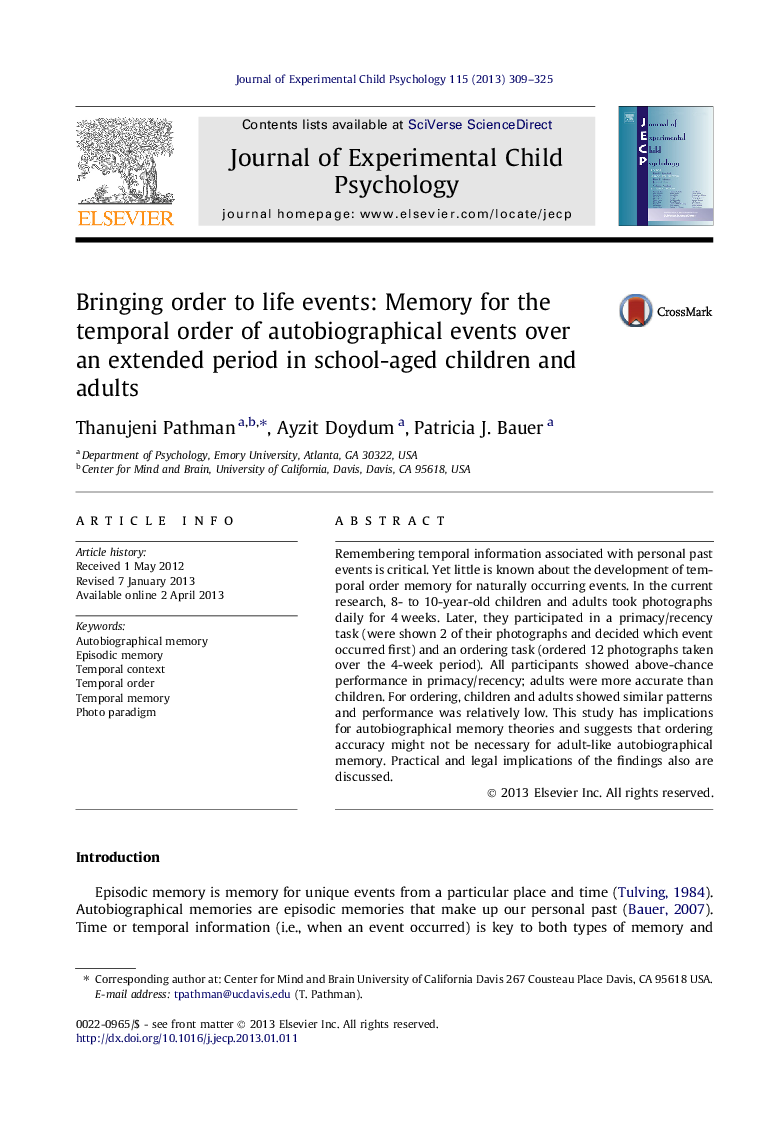| Article ID | Journal | Published Year | Pages | File Type |
|---|---|---|---|---|
| 918172 | Journal of Experimental Child Psychology | 2013 | 17 Pages |
Remembering temporal information associated with personal past events is critical. Yet little is known about the development of temporal order memory for naturally occurring events. In the current research, 8- to 10-year-old children and adults took photographs daily for 4 weeks. Later, they participated in a primacy/recency task (were shown 2 of their photographs and decided which event occurred first) and an ordering task (ordered 12 photographs taken over the 4-week period). All participants showed above-chance performance in primacy/recency; adults were more accurate than children. For ordering, children and adults showed similar patterns and performance was relatively low. This study has implications for autobiographical memory theories and suggests that ordering accuracy might not be necessary for adult-like autobiographical memory. Practical and legal implications of the findings also are discussed.
► We examined the development of temporal memory for personal past events. ► Children and young adults photographed events of their choosing over 4 weeks. ► In lab, participants ordered events using photographs in two temporal memory tasks. ► Age-related differences were found for certain temporal memory tasks. ► Temporal distance effect was found in all participants.
